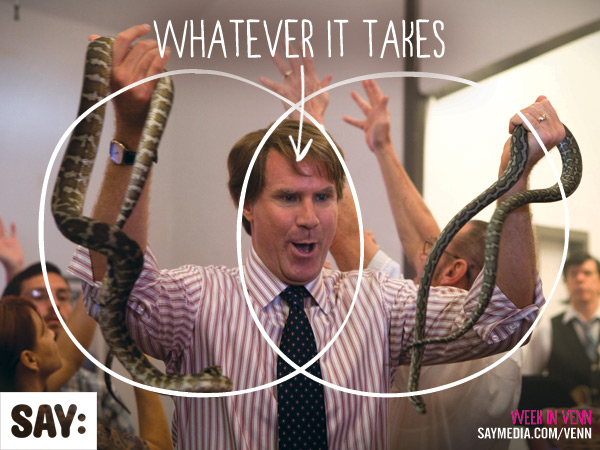Voters Go Off the Grid: Will Campaign Ads Follow? - SAY Media

Since the 1950s, TV ads have been the easiest way for political candidates to reach large audiences - and still maintain complete control. When any political slip-up is immediately amplified across every social media channel, careful scripting and editing is the easiest and safest way for candidates to sway an undecided voter, right? Wrong. It doesn't work.
TV ads are expensive, with the 2012 political cycle expected to top $3 billion. That's a lot of money when you consider that 42 percent of likely American voters aren't even using live TV as their primary source of video. In fact, according to the results of SAY Media's second annual research study "Voters Going Off the Grid," more and more voters are consuming media via streaming video, tablets, and smartphone – not TV. And those who are still watching video on TV are recording it, with 32 percent of voters skipping commercials altogether via DVR.
So what does this mean for the candidates? Time to change their TV media plan? Run fewer ads? Kiss fewer babies? After all, most people already know which way they're going to vote. It's only those crucial undecided voters who politicians really need to reach.
Knowing how important the key battleground states will be in the 2012 election, the Off the Grid study also examined the media consumption habits of likely voters in Florida and Ohio. Pay attention politicians and political advisers: Their media habits are changing. Mobile adoption rates in both states are much higher than the overall average, with a 15 percent increase in Florida and a 13 percent increase in Ohio from just last year. And they aren't just using them to play Angry Birds and take photos of those adorable babies that need to be kissed either.
The key findings from the Off the Grid study were:
- More video content is streaming:In 2012, 42 percent of Americans likely to vote aren't using live TV as their primary source of video content, and nearly half the total time watching video in a week is not on live TV.
- Voters are going mobile: Half of likely voters own a smartphone.
- Ad skipping is on the rise: While many likely voters still watch live TV, 32 percent skip ads entirely when watching recorded TV from a DVR.
- Tablets are on the uptick: One third of likely voters own a tablet, providing a new channel for political ad campaigns to reach potential voters. Both Florida and Ohio are also seeing similar patterns - a third of likely voters their own tablets.
- Live TV viewership is in decline:Nearly a quarter of likely voters plan to switch to digital streaming, compared to traditional providers, in one to two years.
Bottom line is that if politicians in the 2012 election want to reach as many Americans as possible, they need to reach voters where they live and work: on their laptops, mobile phones, and tablets. After all, candidates can visit a lot more coffee shops than they ever thought possible to wrangle up votes … just as long as those coffee shops have Wi-Fi.
SAY Media is a digital publishing company that creates amazing media brands. Through its technology platform and media services, SAY enables its portfolio of independent content creators to build passionate communities around key consumer interest areas such as Style, Living, Food and Tech. For more information visit www.saymedia.com.
Read all SAY Media's MediaBizBloggers commentaries at SAY Daily.
Check us out on Facebook at MediaBizBloggers.com
Follow our Twitter updates @MediaBizBlogger
The opinions and points of view expressed in this commentary are exclusively the views of the author and do not necessarily represent the views of MediaBizBloggers.com management or associated bloggers. MediaBizBloggers is an open thought leadership platform and readers may share their comments and opinions in response to all commentaries.

